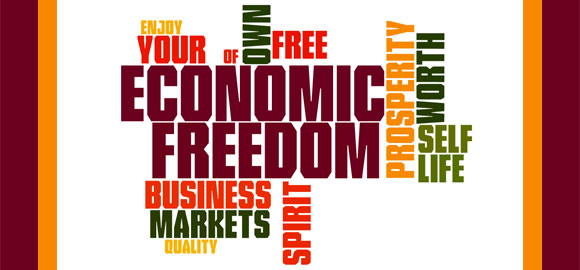

Economics
·
Th
·
I am a proponent
of free-market, free trade capitalism in the spirit of Adam Smith. I recognize that the
system is not perfect, just like any human system, so the government's role in
the economy should be to correct market imperfections. These include monopolies,
incomplete information, negative externalities, and products and services that
are in high demand but that can only be provided for the collective good.
·
Protectionist
economic policies only cause harm and play favorites.
The
ideal global free market is the most democratic system ever established, and
when people, markets, communication and ideas are forcibly confined to within
strict national boundaries, the universal right of individual liberty is
undermined.
·
Taxes
The President does not control the tax code, rather, the responsibility to enact a tax code lies on Congress. Do not believe or vote for a candidate based on, "My tax plan would be XYX..." However, as a part of the budgetary process, the Executive Office, including the OMB, submits an annual budget to Congress for them to vote on, or hack to pieces. This procedure is not written into the Constitution, but is tradition. So, the following is what I would submit to Congress.
The
purpose of government is to protect the inalienable rights of all, life,
liberty, and property. In order to do so, the government needs funding. But as
in any public policy, fundraising must be done in an equitable manner that does
not favor one segment of society over another. Higher tax rates for the wealthy
are inequitable when they already significantly pay a vastly higher amount
numerically. The money could be better spent in the private sector to spur the
economy. Yet, the wealthiest, with the best lawyers, too often find exemptions
and tax loopholes to where they actually end up paying a lower percentage than
most. Unjustly favoring the wealthy in this manner is as well, quite
inequitable. As such, “progressive” tax rates and the current tax code ends up
just hurting the middle class more than anyone.
COMMUNISM, CAPITALISM, AND THE CHRISTIAN RESPONSE
Matt
White
July 6,
2015
Communism, as promoted by Marx, promotes a view of capitalism as being a system
that oppresses the poor, and that has a ruling class obsessed with money, greed,
and materialism. For Christians who
believe in capitalism, when interacting with communists, it is important to
state, with humility and respect, our common ground based on our Biblical
mandates. Communists and capitalist Christians can both abhor rampant greed, as
the Bible teaches that “…the love of money is a root of all kinds of evils” (1
Tim. 6:10 ESV). Christians cannot deny our mandate to show compassion towards
the poor: “Whoever oppresses the poor to increase his own wealth, or gives to
the rich, will only come to poverty” (Prov. 22:16 ESV).
By
living their lives within the Biblical mandates, Christians should strive to
live in contrast to the communist generalizations of capitalists. God sees each
of us as unique individuals created in his image, and not just as an
insignificant part of the collective masses, a cog in the state machine. In a
capitalistic system, people are free to pursue their individual talents of which
God has endowed. Capitalism does not necessitate greed; it better ensures
general prosperity. When we are free to use our God-given talents, we prosper,
and that prosperity radiates in all directions. When people create wealth, they
spend it, increasing the prosperity of local business owners and their
employees. Businesses prosper by creating goods and services that are useful to
all members of society in mutually-beneficial agreements.
The
capitalist system has more capability to lift people out of poverty than any
other system, as history has shown. Regardless of the merits of capitalism, it
is an imperfect human-run institution that still leaves many in need by local
standards. Christians are mandated to give to the needy, however, it is not
through forced redistribution. “Each one must give as he has decided in his
heart, not reluctantly or under compulsion, for God loves a cheerful giver” (2
Cor. 9:7 ESV).
Communism promotes a bipolar worldview of class, where the wealthy are the
oppressors and the common man is the oppressed. Such classes do not exist in
God’s eyes, and the call for class warfare has to end. Every person, regardless
of worldly possessions, is on equal footing in need of God’s grace. Not all rich
people are evil. Not all poor people are virtuous. God sees what is in a
person’s heart, and not how much is in a person’s bank account.
Moral Criticisms of the Market
Ken S. Ewert (March 1, 1989)
This linked article was obviously not
written by me, but I highly recommend reading it.
November 4, 2013